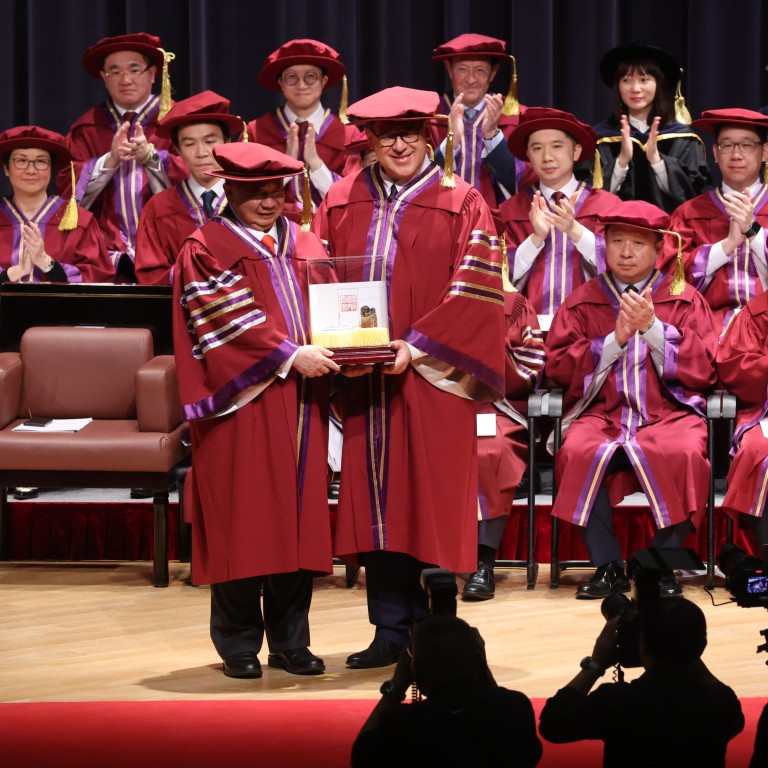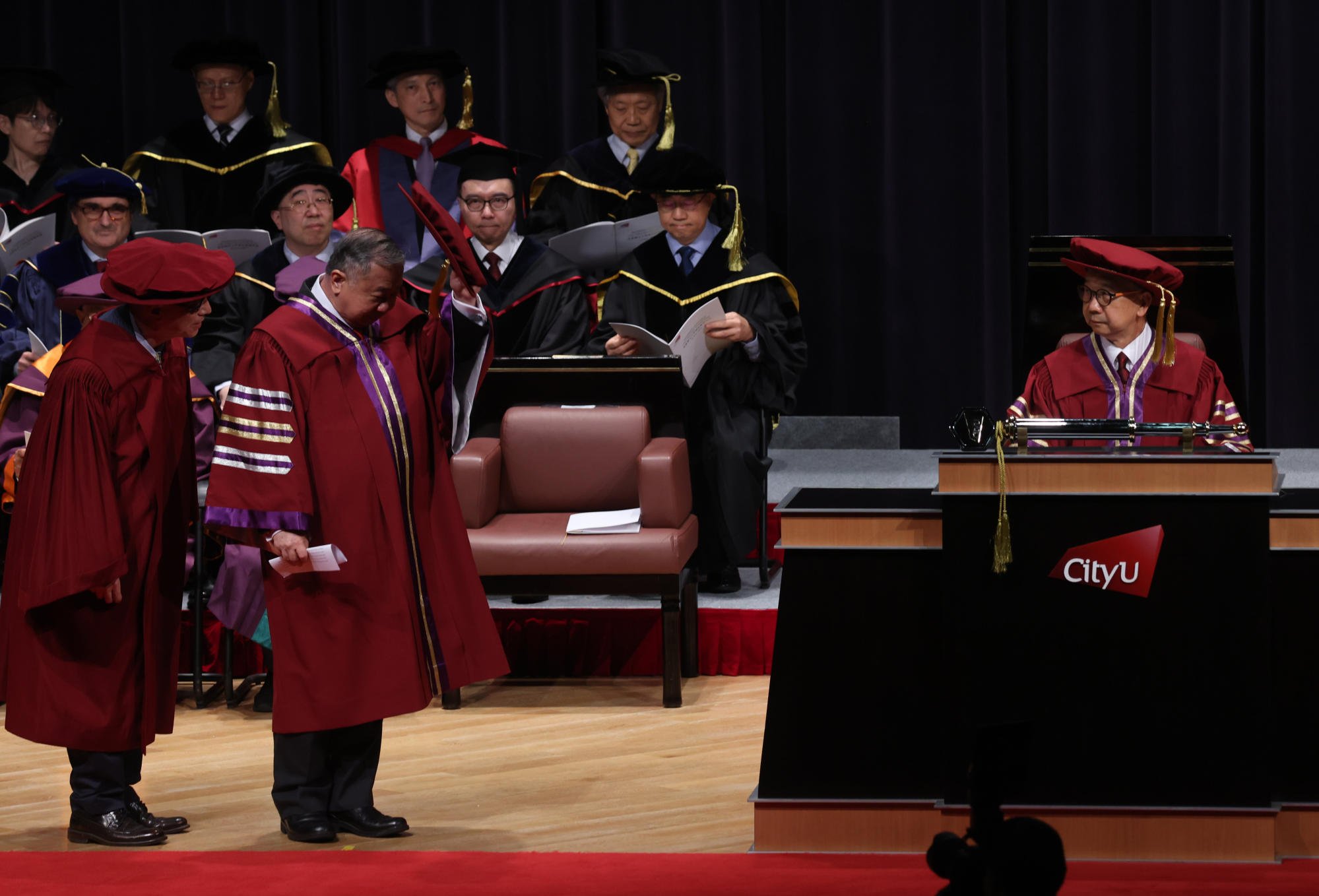
City University of Hong Kong’s new president vows not to let space constraints stand in the way of raising institution’s international ranking
- CityU welcomes Professor Freddy Boey who takes over from Way Kuo who resigned after being in charge for 15 years
- Singaporean academic says he aims to bring hope to Hong Kong’s young people and focus more on learning than on teaching
The new president of the City University of Hong Kong (CityU) has vowed to raise the varsity’s international ranking during his term, saying the issue of space in the city should not be a deterrent.
Singaporean academic Professor Freddy Boey also said he wanted to give Hong Kong’s young people hope, but stopped short of touching on the city’s social atmosphere in his installation speech as he assumed office on Thursday.
“CityU resides within probably one of the densest cities in the world,” said Boey, formerly deputy president for innovation and enterprise at the National University of Singapore (NUS), during his installation speech on Thursday morning.

“We will do what we can innovatively to mitigate this problem. But I can tell you that many top universities are facing as severe a space problem as ours.”
Boey was hired as president of CityU following an international, year-long search to replace Professor Way Kuo, who officially stepped down last Saturday after 15 years in the position.
A skilled inventor and prolific academic, Boey holds a PhD in Chemistry and Engineering from the National University of Singapore. He also won the city state’s top science accolade, the President’s Science and Technology Medal in 2013 for his bioengineering patents.
CityU selects Singaporean academic and inventor Freddy Boey as next president
Boey pledged to move the university from a teaching-centric model to one focused on learning.
“If we are to prepare our students for a sustainable, lifelong career and future, CityU must become more learning-centric than teaching-centric,” he said, adding that this would be achieved by embracing traditional, interactive and innovative learning.
“CityU belongs to the local Hong Kong society … Engagement with the local community should not only be an option, but a core value … I hope to increase engagements with the local schools and less advantaged communities.”
Boey said he had been on campus since January – months before assuming office – and had had discussions with students and academic staff about the university.
Hong Kong team develops lightweight drone that can fly for longer
He said that the university’s main goal, and everything its staff did, would be to give hope to Hong Kong’s young people.
The media were not given an opportunity to ask questions on Thursday.
Kuo, president of CityU since 2008, announced two years ago that he would not renew his contract when it expired.
In his leaving speech published on the CityU website, Kuo noted the university had overcome numerous obstacles, inside and outside the campus, over the past years.
“By maintaining the separation of politics and education, I have ensured that CityU provides safe spaces for research and an ambience in which education can flourish,” he said.
Mainland Chinese academics outnumber locals at Hong Kong universities for first time

